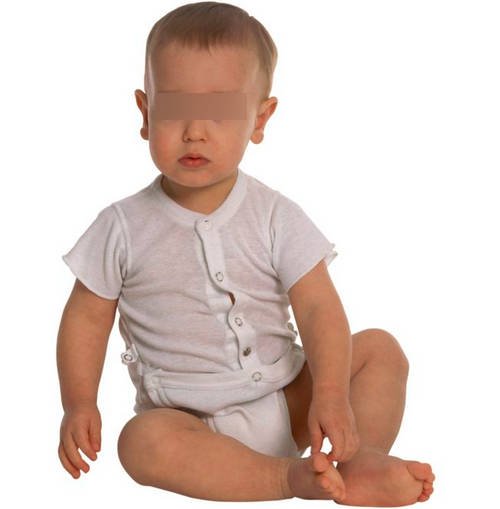The usual color of the stool is brown to yellowish brown, although there are a few slight variations with the color. However, there are instances when the color of the stool is totally different than the usual. It could be caused by our food intake or side effects of medications.
If you notice that your stool color is on the white or pale side along with diarrhea, then it signals that there is something wrong in your body. It could be an indication of an underlying medical condition. A white foamy stool is categorized into two: acute and chronic.
Acute is short-term and occur suddenly. Chronic is something that has been going on for a long period of time. (1, 2, 3, 4)

Picture 2: A white diarrhea is something that should not be taken lightly, especially if it has been around for several days.
Photo Source: img.aws.livestrongcdn.com
What causes white diarrhea?
There are a variety of reasons why you are having white diarrhea or pale stools. Some of the possible reasons are the following:
- Insufficient bile – The bile is a structure in the liver and its number determines the color of the stool. If the bile is on the low side or not have a bile at all, it could lead to a pale stool or white stool.
- Liver disease – A pale/white stool could also indicate an underlying liver disease. if you have diseases of the liver such as cirrhosis, hepatitis, and fatty liver disease, the flow of bile to the liver will be obstructed leading to a variety of symptoms such as pale stool, jaundice or yellowish discoloration of the skin, fullness in the right upper abdominal quadrant, and nausea with or without vomiting.
- Bile duct obstruction – Obstruction in the bile duct can be caused by the presence of gallstones, inflammation, fibrosis, and cancer. Obstruction in the bile duct can significantly affect the flow of bile leading to pale colored stool.
- Pancreas-related condition – The pancreas can get inflamed for some reasons such as viral infection and excessive intake of alcoholic drink. A pancreatic cancer is also another possible condition. Signs and symptoms of pancreatic-related condition include upper and middle abdominal quadrant pain, nausea, low appetite, and white stool.
- Side effects of chemicals – If you are taking medicines or supplements, you will notice that there is a slight variation in the color of your stool. It could be due to the chemical content of your drug. Some drugs and procedures can cause acute white diarrhea such as taking antacids, excessive intake of calcium, and barium enema. (2, 4, 5, 6, 7)
Diagnostic procedures
To find out the underlying cause of white diarrhea, laboratory test and diagnostic procedures should be performed. They are the following:
- Stool exam
- Blood work with in-depth details of the white blood cells
- Examining the level of pancreatic enzyme, liver enzyme, and bilirubin
- Ultrasound of the abdomen (2, 4)
How to treat a white diarrhea?
- A white diarrhea does not always require medication. Most cases subside on its own after a few days. You can hasten the healing process by following these tips:
- Low fat diet.
- Increase your intake of lukewarm water.
- Gradually increase your intake of soft foods.
- Take plenty of sleep and rest to help the body in restoring its normal function.
- Increase your intake of natural fruit juices, soups, and drinks containing vitamins and electrolytes.
- Increase your intake of prebiotics and probiotics such as yogurt, kimchi, and the likes.
- For discomfort and stomach pain, you can alleviate it by placing a heating pad on the tummy.
If you have tried the home remedies mentioned above and nothing seems to work, then it is time to resort to antidiarrheal drugs. If the diarrhea has been going on for several days, then it is high time to consult your doctor.
There could be an underlying medical condition and your white diarrhea will not stop unless the underlying medical condition is properly addressed. (3, 6, 8, 9, 10)
When should you consult your doctor?
- You should consult your doctor if you are having a high fever, frothy white diarrhea, and noticeable weight loss.
- Excessive thirst, decreased urine output, a feeling of fatigue, and lightheadedness are all indicators of dehydration. If you notice these symptoms, then you need to consult your doctor the soonest time possible.
- Confusion, seizure, and mental changes are alarming symptoms and that you need to consult your doctor as soon as you can. (1, 3, 5, 7)
White diarrhea in infant

Photo 3: White diarrhea can also affect the children, especially the infants.
Image Source: img.aws.livestrongcdn.com

Image 4: A sudden change in the infant’s poop can be easily noticed in the diaper.
Picture Source: encrypted-tbn0.gstatic.com
There is a huge difference between the stool of adult and stool of baby. This is primarily caused by the food intake of the baby. The color of infant’s stool primarily depends on the foods last taken by the infant. If there is an infection, you can easily notice it by looking at the color and quality of the stool.
Infants experience having a white diarrhea too and it is linked with milk consumption and/or food allergy. Another possible cause is bile duct blockage or liver disease. White diarrhea is infant can also be caused by gluten intolerance such as in the case of infant with Celiac disease.
To find out the root cause of white diarrhea in infant, the doctor will run a battery of test such as complete blood count, stool exam, check the presence of food allergy, and test for celiac disease. If you are a parent, seeing your baby having a white diarrhea, especially if it has been going on for several days can be extremely alarming.
Prompt and timely care is a must as babies are more sensitive than adults. You need to check the bout of diarrhea and if it has been going on for at least five times
If the child passes eight or more loose stools in a span of 12 hours, has fever, crying without tears, and you notice blood or mucus in the stool, then you need to rush your baby to the hospital. It is a matter of life and death. A diarrhea in infant should be taken seriously as dehydration can kill really fast. (3, 7, 9, 10)
References:
- https://www.hxbenefit.com/white-diarrhea.html
- https://healthool.com/white-diarrhea/
- https://www.mayoclinic.org/white-stool/expert-answers/faq-20058216
- https://www.mayoclinic.org/stool-color/expert-answers/faq-20058080
- https://www.webmd.com/parenting/baby/features/truth-about-baby-poop
- http://www.diarrheanurse.com/white-poop.html
- https://www.healthline.com/symptom/pale-stools
- https://gizmodo.com/what-your-poop-is-trying-to-tell-you-1564158256
- https://www.healthhype.com/white-pale-clay-gray-bowel-movement-is-it-normal.html
- https://www.unitypoint.org/livewell/article.aspx?id=d7a92af5-f39d-46fa-81ef-a17dce49788f
